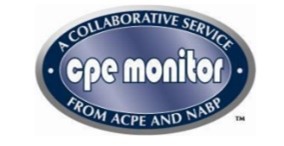Announcer:
Welcome to CME on ReachMD. This episode is part of our MinuteCE curriculum.
Prior to beginning the activity, please be sure to review the faculty and commercial support disclosure statements as well as the learning objectives.
Dr. He:
This is CME on ReachMD. I'm Dr. Ruth He, a GI Oncologist from Georgetown University Hospital from Washington, DC. In this episode, I'm going to review safety data of immune checkpoint inhibitor combination in unresectable HCC and discuss strategy to manage adverse events. But I want to start with talking with you about the uniqueness of these type of patients the HCC patients.
So, I always tell my patients, you're fighting two battles. You're fighting a battle against cancer and you're fighting a battle against declined liver function. So, I always try to educate patients about the signs of liver failure. Usually so, the symptoms of ascites and encephalopathy and variceal bleeding. And we always need to watch for patients’ liver function.
And so, when we treat patients with any kind of therapy and, in addition to disease progression, we would want to also watch out for adverse events of the treatment we give to patients. So, currently with the two combinations of immunotherapy, one is bevacizumab/atezolizumab. So, you need to watch out for adverse events of VEGF-related adverse events. In a patient with portal hypertension, possible esophageal varices, it is very important to screen our patients who have potential risk of bleeding.
So, if patient has severe portal hypertension and varices that need banding, we should stay away from anti-VEGF therapy. And on the other hand, things do change. If patient has had a normal endoscopy 6 months ago, if patient develops HCC with vascular invasion, the portal pressure can change and as a result of disease progression, those patients may need to have repeat EGD to evaluate varices. Please be mindful of any, risk of varices-induced bleeding.
And, since we're talking about the anti-VEGF therapy, we also have to talk about proteinuria. And so, you can see a lot of these patients may have underlying proteinuria. So, when I start patient on treatment, I normally would repeat a urinalysis.
And if patient has proteinuria, and we need to really follow up on those patients and hold off therapy if the proteinuria gets worse. Because other common reasons for proteinuria, high blood pressure, diabetes, a lot of those patients do have those comorbidities.
The other large side effects of treatment from those immuno-combinations is immune-mediated side effects. And, so the one that most commonly seen immune-mediated side effects are worsening liver function, or increased transaminase. And so, the rule of thumb is we would repeat the liver function before each treatment. If it is significantly elevated, for example, if the normal now grade 3, or if they started with Grade 1 increasing transaminase, usually 5 to 8 times of increase from upper normal limit would trigger a response. Usually, we would repeat the liver function, hold off treatment, repeat the liver function in 72 hours. If it's elevated persistently and/or if it's going up, we would need to rule out other reasons for increased transaminase, such as reactivation of hepatitis or any other effect of medication. If we rule out all the other reasons for the increase in transaminases, then we would consider prednisone steroid treatment.
Other side effects that I think it's very important, although not as common, is colitis. And so, you can imagine patients with portal colopathy, in which they could have some underlying loose bowel, mild diarrhea as a result of portal hypertension. And if the frequency, amount of diarrhea increases, then I think it's important to rule out immune-mediated colitis. Usually, I would refer patient to a GI doctor, and sometimes they need to have colonoscopy to evaluate, to rule out immune-mediated colitis.
And, the treatment usually starts with high-dose steroids, and infliximab is the next lines of therapy if patient develop steroid refractory colitis. And when patient is on immunotherapy and keep in mind that we always need to check thyroid function periodically because patient can develop immune-mediated endocrine disorders. So, I tell my patients if they have any new symptoms, they always need to report to their oncologist. We’ll sort out to see if this is an immune-mediated adverse event.
Well, I think if you want to get the full list of adverse events, please look at the package insert of those compounds.
And this is brief, but hopefully useful, all of you. My time is up but thank you very much for listening.
Announcer:
You have been listening to CME on ReachMD. This activity is provided by Total CME, LLC and is part of our MinuteCE curriculum.
To receive your free CME credit, or to download this activity, go to ReachMD.com/CME. Thank you for listening.


 In support of improving patient care, Global Learning Collaborative (GLC) is jointly accredited by the Accreditation Council for Continuing Medical Education (ACCME), the Accreditation Council for Pharmacy Education (ACPE), and the American Nurses Credentialing Center (ANCC) to provide continuing education for the healthcare team.
In support of improving patient care, Global Learning Collaborative (GLC) is jointly accredited by the Accreditation Council for Continuing Medical Education (ACCME), the Accreditation Council for Pharmacy Education (ACPE), and the American Nurses Credentialing Center (ANCC) to provide continuing education for the healthcare team.


